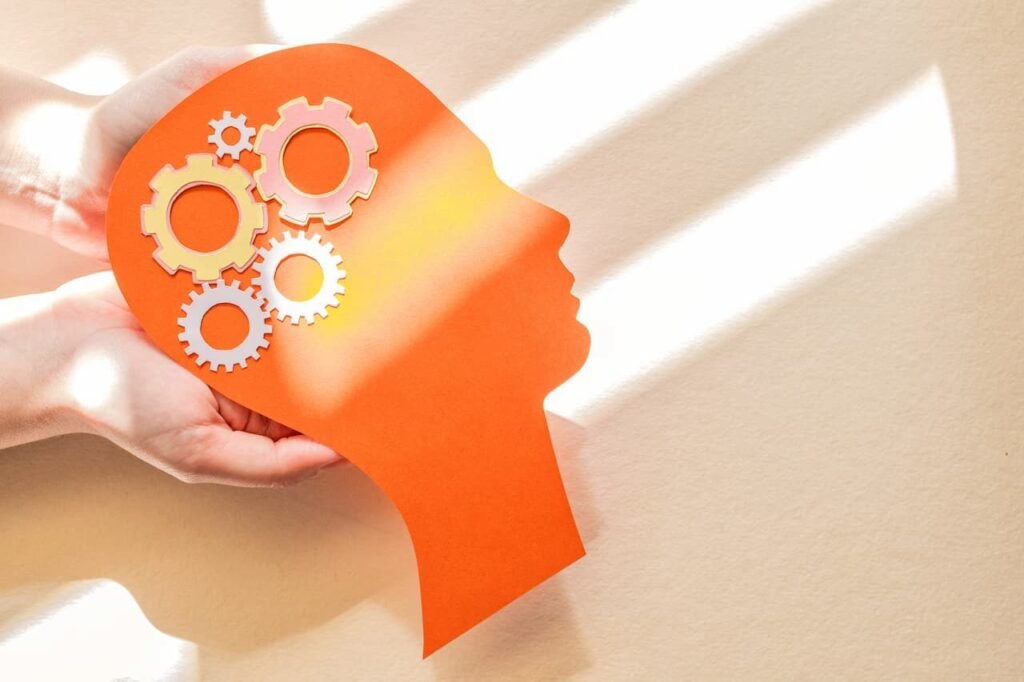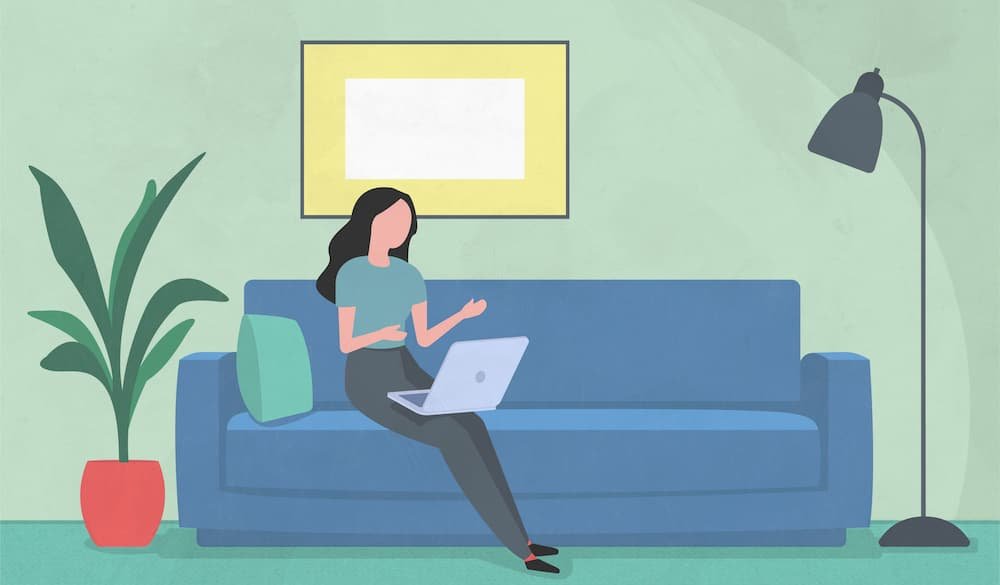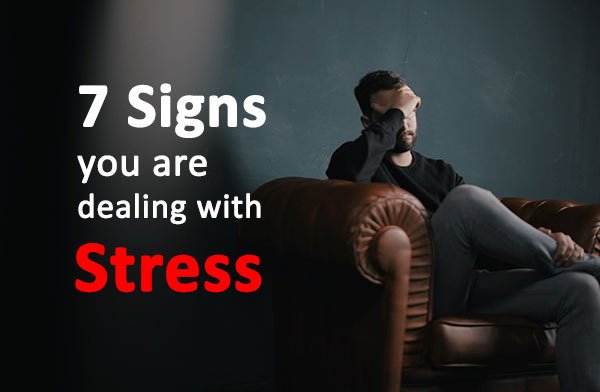Talk to a Psychologist for Online Counselling
Book Appointment 100% Private & Secure
Convenient, 100% anonymous, safe, certified professional counseling online.Cognitive behavioral therapy (CBT) is a type of goal-oriented psychotherapy (talk therapy) that focuses on identifying your negative thought patterns, changing your behaviors and developing new coping strategies. Cognitive behavioral therapy (CBT) believes that a person’s behavior is determined by his/her thoughts and the way a person perceives a situation. If we change the thinking of a person, his/her behavior will be changed as well.
It helps in identifying the maladaptive and automatic negative or unrealistic thoughts, emotions, behavior and response patterns and reconstructing them into a desirable pattern of realistic thoughts, emotions, behavior and responses. It is a combination of cognitive and behavioral therapy that helps to understand the relationship between our thoughts and behavior. It focuses more on the here and now and less on the past.


How does the cycle of thoughts and behaviors work?
- A person’s negative thoughts or perceptions can lead to emotional distress.
- The emotional distress and the negative thoughts can result in unhelpful behaviors.
- Due to repetitive negative thought patterns and behavior, it creates a cycle that keeps repeating itself.
- If you learn the coping strategies to change your negative and unhelpful patterns, you can deal with your emotional and mental health issues.
Core Concepts of Cognitive Behavioral Therapy (CBT)
- Psychological issues arise due to unhelpful and negative thought pattern
- Unhelpful and negative patterns are partly learned behaviors and can be unlearned.
- Psychological issues arise due to irrational core beliefs about yourself and others.
- People dealing with psychological issues can learn helpful coping mechanisms. It can aid in reducing the symptoms and improving their emotional and mental health.
Where Cognitive Behavioral Therapy (CBT) is used?
The psychological disorders where CBT is used are:
- Anxiety
- Panic Attacks
- Phobia
- Depression
- Obsessive Compulsive Disorder (OCD)
- Sleep Disorder
- Eating Disorder, including Anorexia, Binge Eating or Bulimia
- Substance Abuse
- Schizophrenia (Combined with medication)
- Bipolar Disorder (Combined with medication)
- Post Traumatic Stress Disorder (PTSD)
- Attention-Deficit/Hyperactivity Disorder (ADHD)
- Personality Disorders
- Trauma


CBT not only benefits in mental health conditions but also in your emotional distress or in your daily life stressors, such as:
- Low self-esteem
- Grief or Loss
- Relationship issues
- Break-up or Divorce
- Work-related stress
- General Life Stressors
- Academic Stress
- Adjustment issues
- Anger issues
- Addiction
Other non-psychological conditions include:
- Irritable Bowel Syndrome (IBS)
- Migraines
- Insomnia
- Chronic pain
- Chronic Fatigue Syndrome
In a meta-analysis in the year 2018, 41 studies were conducted on patients (N=2,8430) with anxiety and various anxiety-related disorders. The results showed that CBT helped in the treatment of the anxiety and anxiety related-disorders, including post traumatic stress disorder (PTSD) and obsessive-compulsive disorder (OCD).
Types of Cognitive Behavioral Therapy (CBT):
CBT comprises a collection of approaches and techniques that deals with thoughts, emotions and behaviors. The approach contains a mixture of structured psychotherapies and self-help practices. Some of the approaches of CBT are as follows:
- REBT (Rational Emotive Behavior Therapy): It consists of recognizing irrational beliefs, challenging and finding evidence for those beliefs; lastly, changing irrational beliefs into rational beliefs.
- MBCT (Mindfulness-Based Cognitive Therapy): It is a combination of cognitive behavioral techniques and mindfulness strategies to help in understanding and managing their thoughts and emotions to attain relief from feelings of distress. It helps in dealing with anxiety, chronic pain, diabetes, increasing emotional control, reducing stress, depression, bipolar disorder, eating disorder, psychosis, etc.
- Dialectical Behavior Therapy (DBT): It helps in identifying harmful, disturbing and destructive behaviors and thoughts while integrating mindfulness and emotional regulation as treatment strategies.
- Multimodal Therapy: It proposes that psychological issues can be treated by focusing on seven different but interrelated modalities: cognition, affect, behavior, imagery, interpersonal factors, biological and drugs consideration.
- Cognitive Therapy: It focuses on cognition and helps in recognizing and replacing unhelpful, distorted thought patterns, emotional responses and behaviors.
- Trauma-Focused Cognitive Behavior Therapy (TF-CBT): It is an evidence-based treatment that helps children, adolescents, adults and their families in overcoming negative and emotional effects of traumatic experiences. It helps in treating several traumas or a single traumatic experience.
- Acceptance and Commitment Therapy (ACT): It is an action-oriented psychotherapy that focuses on acceptance as a way to deal with negative thoughts, feelings, symptoms and circumstances. It helps majorly in managing catastrophic thinking and intrusive thoughts.


Techniques of Cognitive Behavioral Therapy (CBT)
- Cognitive Restructuring: It combines a number of techniques that helps people identify and restructure their negative/destructive thinking patterns such as cognitive distortions into helpful and positive thinking patterns.
- Identifying Negative Thoughts: It is necessary to identify the thoughts, events and emotions that contribute to maladaptive behaviors. The introspection helps in gaining insight and self-discovery that are important for the treatment process.
- SMART Goal Setting: Goal-setting plays an important role if an individual wants to make changes, recover from their mental illness and improve their health and life. A CBT practitioner can help in strengthening a person’s goal-setting skills. It helps in setting SMART goals that are attainable and realistic. The ‘SMART’ acronym stands for:
- S = Specific
- M = Measurable
- A = Attainable
- R = Relevant
- T = Time-based
- Problem-Solving: CBT teaches skills to identify and solve problems that may arise due to life stressors. It helps in minimizing the negative effects of psychological issues as well. The 5 involved in problem-solving are:
- Recognize the problem.
- List out possible solutions for the problem.
- Assess the strengths and weaknesses of each possible solution.
- Choose a solution to execute.
- Execute the solution.
- Self Monitoring: It is one of the important techniques of CBT that involves keeping an eye on your emotions, experiences and feelings over time and discussing them with your counsellor/therapist. Self-monitoring helps the counsellors/therapists to give you the best treatment. For example: If you are feeling anxious, you can monitor your thoughts and triggers that induce anxious feelings.
- Positive Coping Strategies: In CBT, individual’s are taught new helpful and positive coping skills and strategies that can be used in day-to-day life. For example, a person suffering anxiety can use the strategies to identify the triggers and use coping skills to reduce their stress.


Benefits of Cognitive Behavioral Therapy (CBT)
CBT teaches that even if you can’t control your environment, other people’s behaviors and the world, you can control how you respond or perceive a situation.
The several benefits of CBT are as follows:
- It is fruitful for a large number of maladaptive behaviors.
- It is more affordable than other types of psychotherapies.
- It can be used for individuals who can be treated without psychotic medications.
- It helps in developing helpful, positive and healthy thought patterns in the place of negative, destructive and unhelpful thought patterns.
- It is fruitful in both online or face-to-face therapy.
- It is a short-term treatment that mostly shows results between five to 20 sessions.


FAQs for Cognitive Behavioral Therapy (CBT)
What does a Cognitive Behavioral Therapist do?
Cognitive Behavioral Therapists help you identify personal beliefs and feelings that create a negative impact on your life and to learn new problem-solving skills. Your therapist will help you gain confidence and understand your self-worth in a better way by encouraging you to face fears and by learning relaxation techniques during difficult and challenging situations.
The therapist uses various types of techniques in CBT, the most popular techniques are as follows:
- Setting SMART Goals
- Practicing Cognitive Restructuring
- Exposure to fearful situations
- Journaling
A cognitive behavioral therapist often assigns homework for practicing the skills learnt during the session such as journaling or replacing self-destructive thoughts.
What is the goal of CBT?
The goal of CBT varies from person to person but the main focus of CBT is to help an individual understand the relationship between thoughts, feelings and behaviors. With the help of homeworks, self-practicing skills, therapy and exercises, a therapist helps you to gain control over your automatic negative thoughts and to learn different ways to change the unhelpful destructive thoughts into realistic and helpful thoughts. As a result, a person may feel better after understanding the cycle of thoughts, feelings and behaviors i.e.
positive thoughts = positive feelings = positive behaviors
What are some cognitive behavioral interventions?
The common CBT interventions are:
- Journaling and thought recording
- Role playing
- Exposure therapy
- Mindfulness meditation
- Breaking bigger tasks into smaller, manageable tasks
- Organizing activities that makes you nervous or anxious


Call us to book a session today.
Contact us at +91 9811335150
Email us – info@onlinecounselling4u.com
Follow us on Facebook or Instagram
Talk to a Psychologist for Online Counselling
Book Appointment 100% Private & Secure
Convenient, 100% anonymous, safe, certified professional counseling online.

